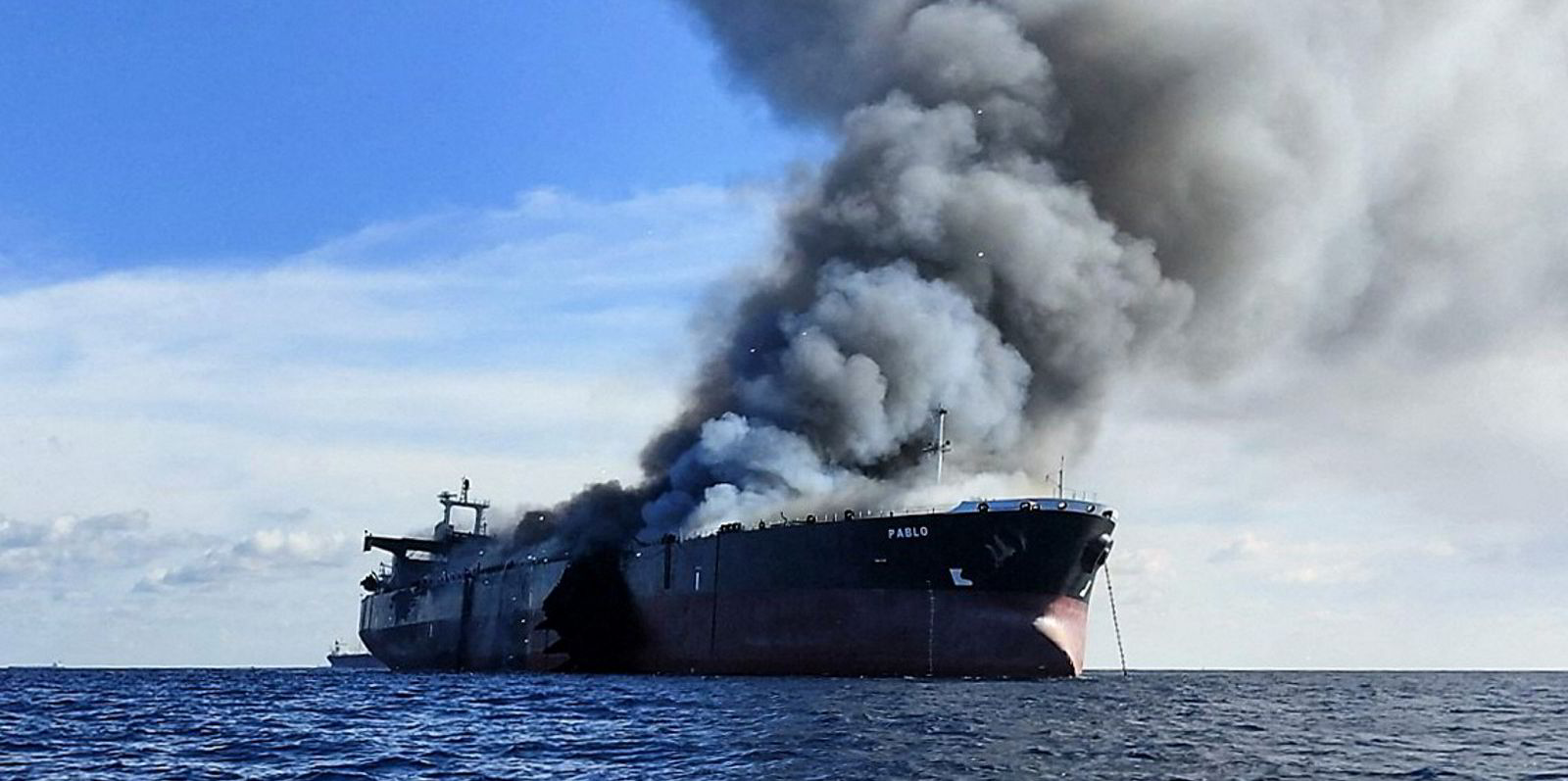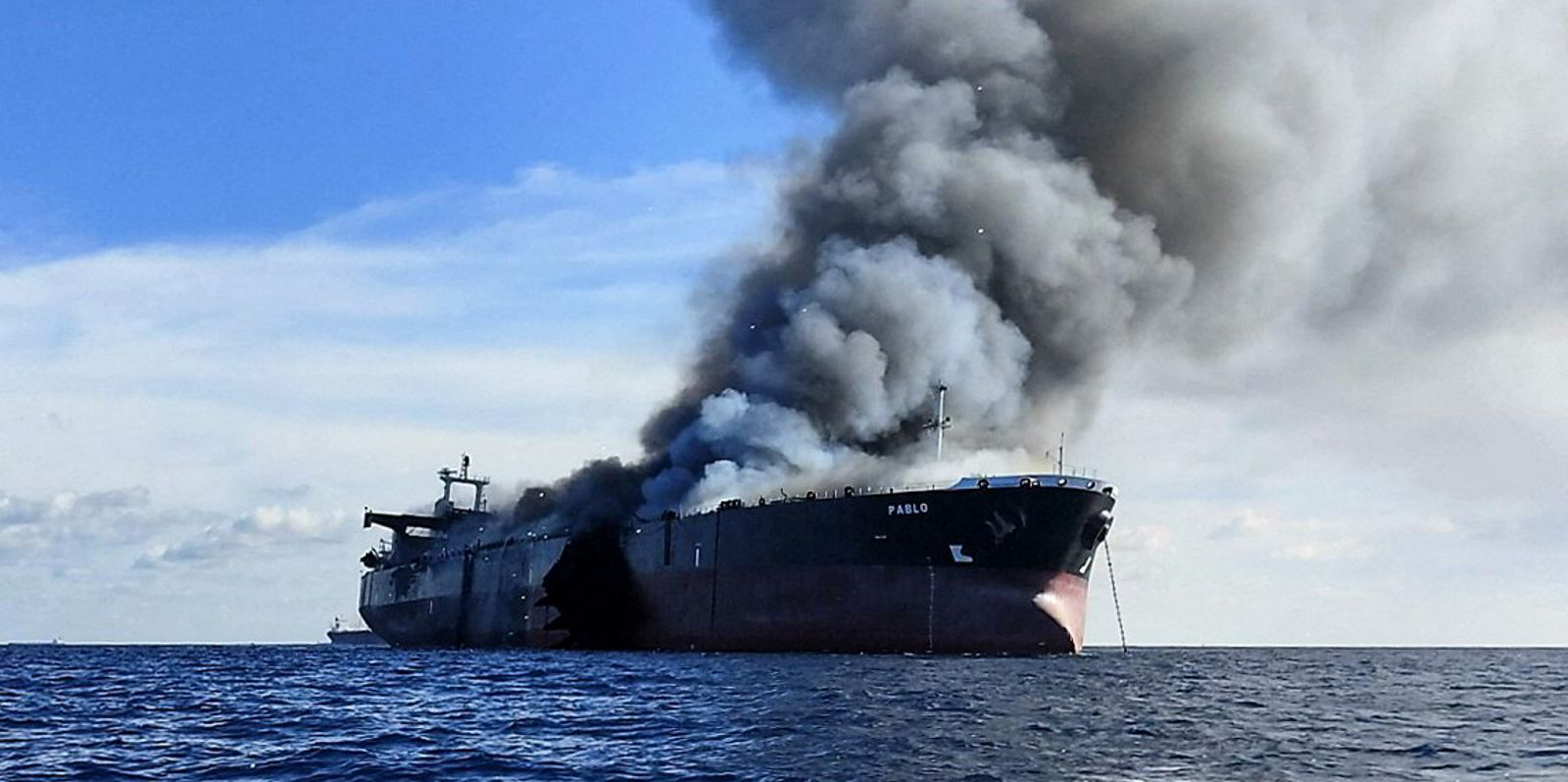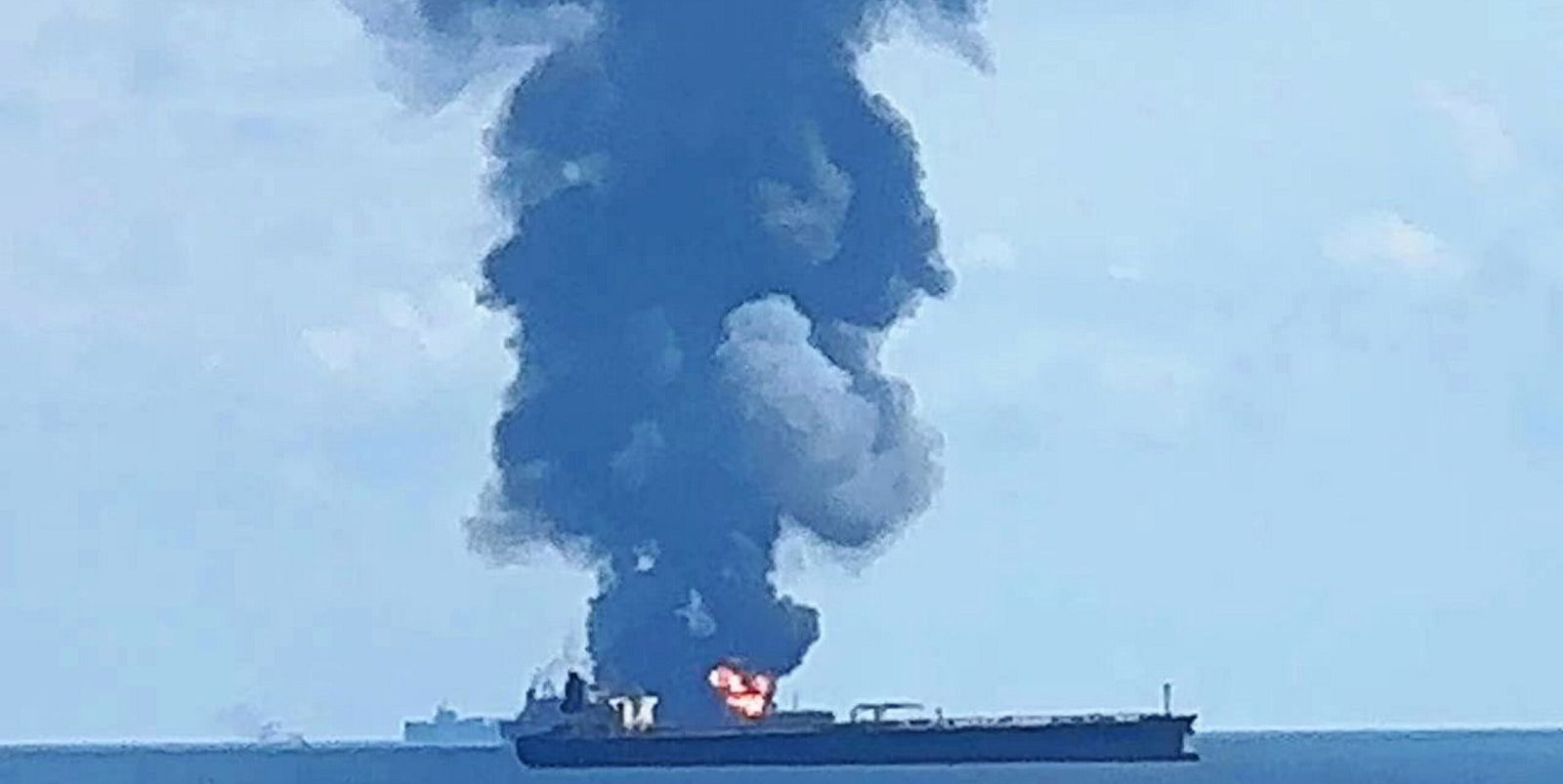Commercial salvage and legal services are steering clear of the wreck removal of the tanker Pablo, which exploded in Malaysian waters, for fear of becoming entangled in sanctions.
That looks likely to complicate the salvage and wreck removal operation, with Malaysian authorities potentially left to deal with the costs and the carcass of the vessel.
The 96,700-dwt Pablo (built 1997) caught fire in the South China Sea early this month at an anchorage 75 km (47 miles) off Pulau Tinggi, close to the entrance of the Singapore Strait.
Legal sources told TradeWinds that Malaysia will probably pick up the salvage and wreck removal costs if it cannot recover them from the tanker’s owner and insurer.
Since the blaze was extinguished, the Malaysian Navy has been in attendance while authorities consider what to do with the Pablo.
There are indications that mainstream commercial salvage services are giving the wreck a wide berth.
There are currently no commercial salvage tugs located around the charred hull, according to AIS data.
The Pablo is alleged to be part of the “dark fleet” — tankers operating in sanctioned oil trades, which are often underinsured and have been dubbed an accident waiting to happen due to the threat of environmental damage they pose.
The Pablo was de-flagged by three shipping registers over the past two years amid allegations of its involvement in transporting Iranian oil.
Little is known of its owner, the Marshall Islands-registered company Pablo Union Shipping, or its insurance status.
No Lloyd’s Open Form contract has been notified following the casualty. It appears that the Malaysia Coast Guard handled the initial firefighting, emergency response and search and rescue services.
It is far from certain at this stage whether the costs can be met by the owner.
Salvage and emergency response costs are usually met by the shipowners’ hull insurer. Wreck removal costs largely fall under protection and indemnity cover.
The tanker is not listed as insured by the International Group of P&I Clubs.
The next issue is whether the owner will be able to contract commercial salvage services for the wreck removal because of the tanker’s alleged links with sanctioned oil trades.
One legal source told TradeWinds: “A salvage company will have to ask itself three things before getting involved: Do I want to get involved in this, is it legal, and will I get paid?”
To avoid the sanctions issue, it might again then be left to the Malaysian authorities to contract salvage services and seek to recover funds later from the owner.
If the costs cannot be recovered from the owner and its insurers, Malaysia may have little choice but to take over the wreck and auction it, probably for recycling.
It would have to be sold with a clean title, which may require clearance from the US Office of Foreign Assets Control and a local court.
If death-in-service compensation for the three crew members who are still missing and are believed to have perished in the explosion does not come directly from the shipowner, their families may be able to make recovery from the proceeds of an auction of the hull.
Malaysia has now called off its search for the three missing seafarers.
The compensation terms are usually laid out in the seafarer’s contract of employment.






